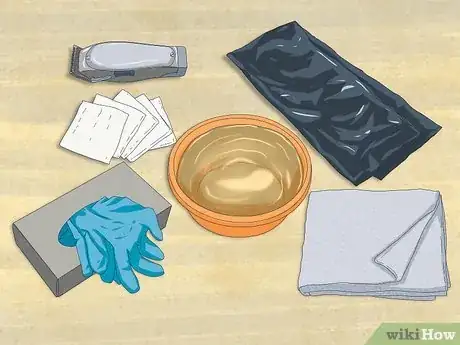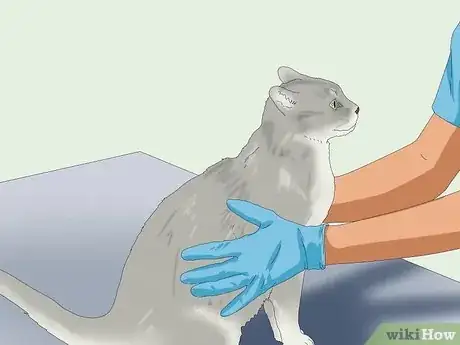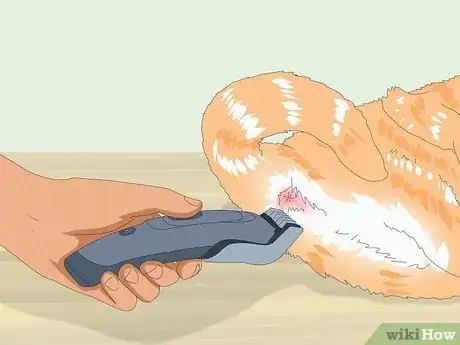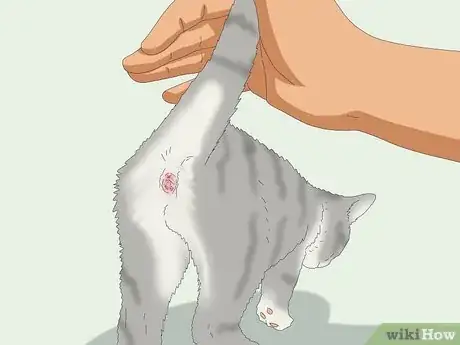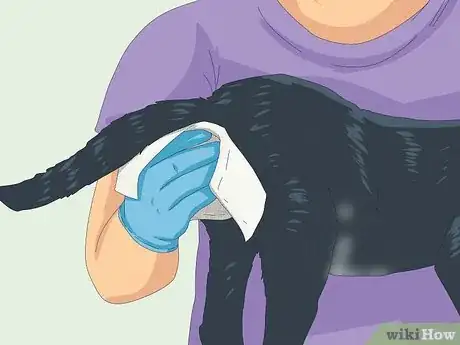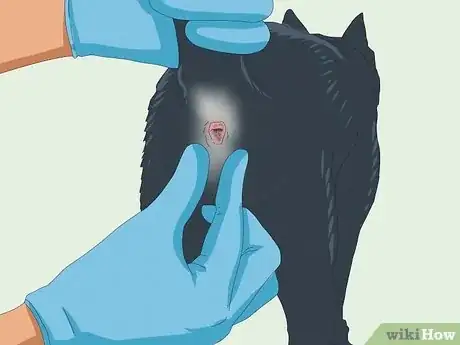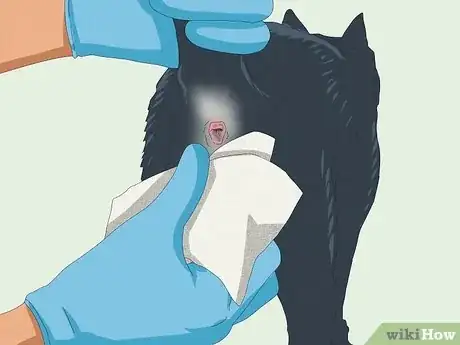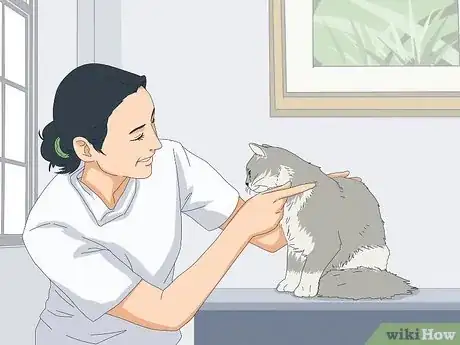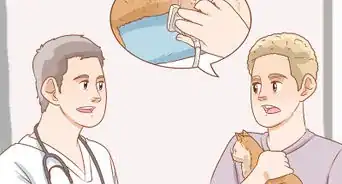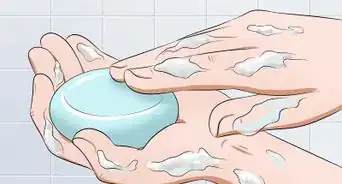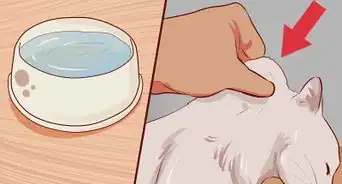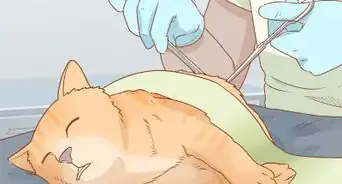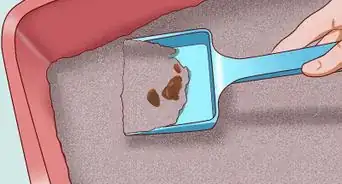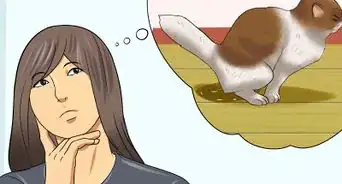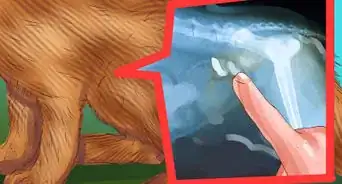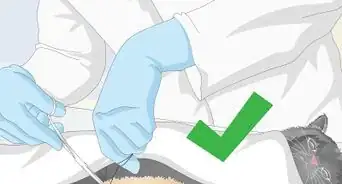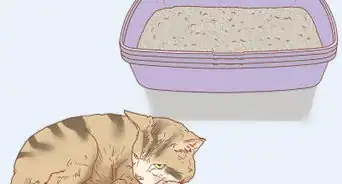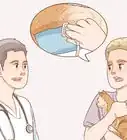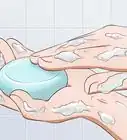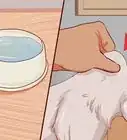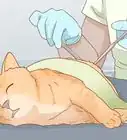This article was co-authored by Pippa Elliott, MRCVS and by wikiHow staff writer, Eric McClure. Dr. Elliott, BVMS, MRCVS is a veterinarian with over 30 years of experience in veterinary surgery and companion animal practice. She graduated from the University of Glasgow in 1987 with a degree in veterinary medicine and surgery. She has worked at the same animal clinic in her hometown for over 20 years.
wikiHow marks an article as reader-approved once it receives enough positive feedback. This article has 14 testimonials from our readers, earning it our reader-approved status.
This article has been viewed 396,422 times.
Your cat’s anal glands (or sacs) normally empty on their own when your cat defecates, but if your cat has an underlying health condition that makes this difficult, you’ll need to help them express their glands. If your veterinarian has recommended you express your cat’s anal glands to relieve pressure and improve your cat’s health, you may want some help. Good news! We’ll make this easy—and we promise this isn’t as yucky as it might sound at first. In this article, we’ll walk you through this process so you can help your cat stay comfortable and happy.
Things You Should Know
- Put some towels down, wear disposable gloves, and ask a friend or family member to hold your cat still.
- Find your cat’s anal glands. These two glands are located to the left and right of the cat’s anus.
- Gently press on your cat’s anal glands. Guide them up towards your cat’s anus until the fluid comes out.
Steps
Expert Q&A
Did you know you can get premium answers for this article?
Unlock premium answers by supporting wikiHow
-
QuestionMy cat's anus looks empty as if the hole isn't closing properly. Is this normal?
 Pippa Elliott, MRCVSDr. Elliott, BVMS, MRCVS is a veterinarian with over 30 years of experience in veterinary surgery and companion animal practice. She graduated from the University of Glasgow in 1987 with a degree in veterinary medicine and surgery. She has worked at the same animal clinic in her hometown for over 20 years.
Pippa Elliott, MRCVSDr. Elliott, BVMS, MRCVS is a veterinarian with over 30 years of experience in veterinary surgery and companion animal practice. She graduated from the University of Glasgow in 1987 with a degree in veterinary medicine and surgery. She has worked at the same animal clinic in her hometown for over 20 years.
Veterinarian
Warnings
- Talk to a veterinarian before trying to express your cat’s anal glands yourself.[10]⧼thumbs_response⧽
- If the anal glands are ruptured and bloody, try to stop the cat licking them excessively, and contact a vet immediately. Most cases can be treated with antibiotics, but severe or recurring cases may result in a recommendation of surgery.[11]⧼thumbs_response⧽
- Obesity is a major risk factor for anal sac diseases, so put your cat on a diet if they’re struggling to lose weight.[12]⧼thumbs_response⧽
References
- ↑ https://www.akc.org/expert-advice/health/how-to-express-dog-anal-glands/
- ↑ https://www.catwatchnewsletter.com/subscriber-only/those-annoying-anal-glands/
- ↑ https://www.catwatchnewsletter.com/subscriber-only/those-annoying-anal-glands/
- ↑ https://www.ruralareavet.org/PDF/Physical_Examination.pdf
- ↑ https://bpvets.net/wp-content/uploads/2017/04/Anal-sac-disease.pdf
- ↑ https://www.catwatchnewsletter.com/subscriber-only/those-annoying-anal-glands/
- ↑ https://veterinarypartner.vin.com/default.aspx?pid=19239&id=4951501
- ↑ https://www.catwatchnewsletter.com/subscriber-only/those-annoying-anal-glands/
- ↑ https://vcahospitals.com/know-your-pet/anal-sac-disease-in-cats
